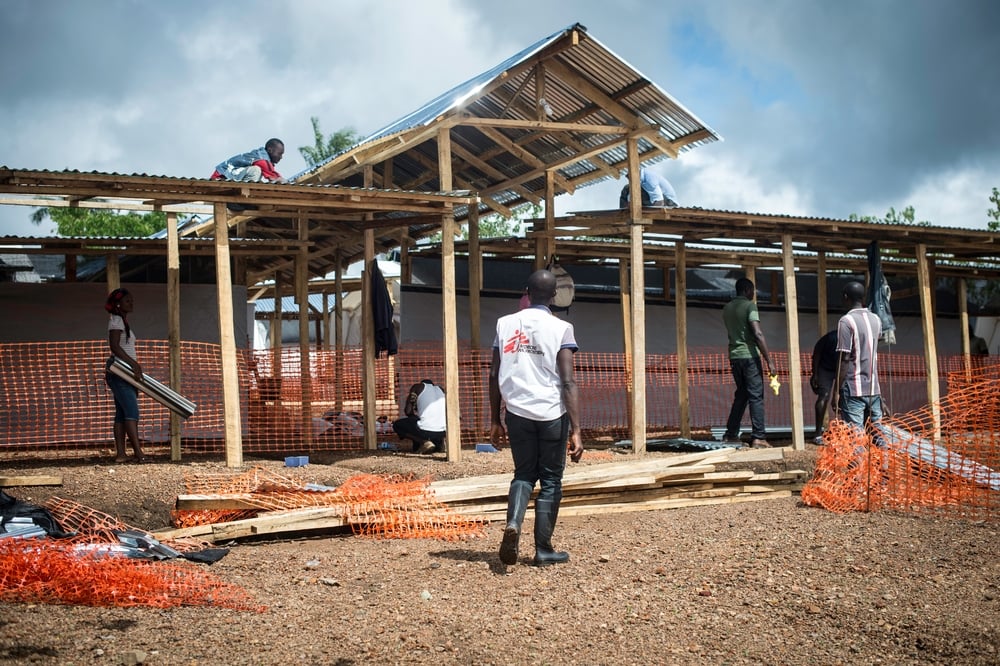Recruitment Zone January 2020: A shout out to our logisticians
When you think about who works for Doctors Without Borders/Médecins Sans Frontières (MSF), the first professionals to come to mind are usually doctors and nurses. But how do vaccines get delivered – and kept cold – during a massive measles outbreak? Or Ebola treatment centres set up so that patients can be treated while keeping staff safe from infection? Or surgical kits assembled and delivered to war and disaster zones?
In this winter edition of MSF Canada’s Recruitment Zone, we give a shout out to our logisticians – professionals who work behind the scenes to make sure that MSF’s lifesaving medical programs run as smoothly as they can in some of the world’s most challenging humanitarian crises.
Logisticians come from a wide array of professional backgrounds – from film set design to tree planting to engineering to warehouse management. If you’re organized, handy, enjoy problem solving and are a good manager, you may find you’re an ideal candidate to be an MSF logistician. And if you succeed in your application, you will find that you’re an essential part of an MSF team, often the hub around which the medical activity takes place.
“I always say that logisticians are the engine under the hood,” says Dr. Ahmed Igbin, an MSF doctor based in Toronto. “We rely on them to set up temporary hospital structures, ensure potable water, bring in the supplies. We could not have controlled the cholera outbreak in Nigeria without our logisticians. In Ethiopia, it was the logisticians who made sure my patients were transported safely.”
There are many types of logistician, including technical logisticians who manage teams, vehicle fleets, IT and supplies; supply logisticians who ensure materials are stored and distributed efficiently from logistics centres to capital cities to field projects; and water & sanitation specialists who design and manage water and sanitation projects to ensure the availability of safe drinking water and waste disposal.
Hayley Sedola is a civil engineer from British Columbia who is currently working as a water and sanitation manager in Kunduz, Afghanistan, where MSF is rebuilding the trauma hospital destroyed by a US airstrike in 2015. It’s an unusual project because it’s made up almost entirely of logisticians, including specialists in water and sanitation, HVAC electricity and building construction.
“You will never find a logistician who is specialized in all the areas you need to know about,” she says. “You just need to know your own area well, be willing to learn and know who on your team can help solve problems as they arise.”
Hayley has been pleasantly surprised by the number of female logisticians at MSF. “As a woman, I expected to have to work harder to be taken seriously,” she says. “But people at MSF expect me to be knowledgeable off the bat, and that has been really nice.”
Christophe Dang Vu’s background as an engineer and construction electrician served him well as he took on increasing levels of responsibility through his assignments in Democratic Republic of Congo, South Sudan, India, Uganda, and Bangladesh.
“Every day is a different day, with a new problem to solve,” he says. “One day I could be making sure the generators were functioning well for our hospitals, clinics and living spaces in some very remote places; the next, making sure that our fleet of vehicles was well maintained or that the satellite-based internet network was functioning well.”
MSF depends on qualified professionals from all over the world – like Hayley, Christophe and Ahmed – to help MSF deliver high quality medical care and humanitarian aid to people affected by crisis, conflict, neglect or disaster. If you have the skills we need and can commit to a field placement for six-to-twelve months, please visit our website and apply today.
